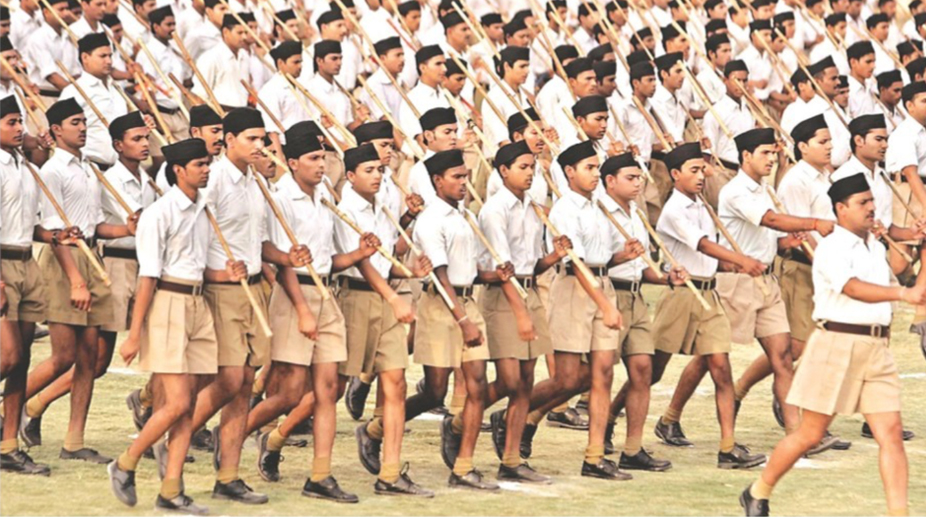It has been customary to label political forces in a country as being of the left and the right. The more nuanced division between left-of-centre and right-of-centre forces has also been in vogue to cover the growing diversity of political parties. In the specific context of India, the balance of power has clearly shifted from a little left of centre to right of centre in recent times.
For democracy to function with ease and grace, the relationship between the two sides of the political divide should not be unduly antagonistic. There should be room to work together on issues of common national interest; there should be space for understanding the viewpoints of each other. In the context of India, the possibilities of this have been diminishing in recent times and this should be a cause for concern.
Advertisement
One reason for this is that the BJP, by far the strongest and best organised cadre-based political party in the country, is widely seen as part of a larger Sangh Parivar, a combination of several organisations with diverse roles but closely linked to each other by a broader shared ideology. Some of these organisations are perceived to be against religious minorities, specifically against two important minorities. This opposition has sometimes taken a violent turn, as documented in several inquiry reports. This is seen to be at odds with the principle of secularism and equal rights of people of all religions firmly enshrined in the Constitution. It is this factor more than anything else which explains the reluctance of many well-intentioned people, who believe in secularism and social harmony, to have any dialogue with what they call ‘communal rightist’ forces.
However, one factor they can and should consider is whether the imperative or need of democratic politics could gradually push and prod the ruling party towards a path of more accommodation and adjustment rather than hostility towards the minorities. Leaders of a ruling party also have to be accountable at international fora. If they are far-sighted, they will start thinking beyond winning elections about the needs of longer- term, broad-based peace and stability in the country. To facilitate this, others may have to play the role of building bridges and breaking the ice.
However sometimes critics of the BJP appear to be oblivious of such possibilities. They time and again repeat the same statements of some early leaders of the Sangh Parivar which were directed against minorities or against Gandhiji and which appeared to be in admiration of Hitler or his ideology. These statements were objectionable, but trying to constantly trap the BJP in these old statements may prove to be counter-productive if this closes the new spaces that some elements in the BJP or the Sangh Parivar may be trying to open up for their organisations.
The evidence so far is that not enough such efforts are actually being made by the BJP and the wider Sangh Parivar, despite the high potential that exists for such efforts now because of the increasing might of the party. While the proper course would be to base actions on grace, generosity and the willingness to correct past mistakes, there is not much evidence of this.
So clearly both sides need to change if the increasing gulf between leading political forces is to be reduced adequately to enable greater cooperation whenever required by larger national and ecological interests. Some leaders in the BJP some time ago gave a slogan of Congress-mukt Bharat or an India in which the Indian National Congress does not survive as a political force. This is an anti-democracy slogan as the ruling party is saying that it does not want its main political opponent to survive as a political party. This is wrong.
Similarly, any effort of other par- ties to try to make opposition to BJP the main plank of their politics would not be a very democratic option. This will merely strengthen the hands within the BJP of those who propagate religious polarisation as a means of increasing support.
Very hostile, even abusive language has been used in recent times against political opponents; entire families have been attacked and maligned. Respected national leaders who are admired all over the world have been criticised long after their death just because they were associated with political opponents. All this is easily avoidable and should be avoided. Top leaders should set the example and clear, strong instructions should go down the line.
Our world is passing through very troubled times due to socio-economic, religious and political reasons. But ecological factors are likely to bring greater distress and bigger problems in the near future than others. South Asia is likely to be one of the main centres of these fast-emerging problems. Anyone with a comprehension of these emerging problems will also see the need for more accommodative and less confrontationist politics in the country. Left and right, the divide should not be too rigid.
(The writer is a freelance journalist who has been involved with several social movements and initiatives.)











